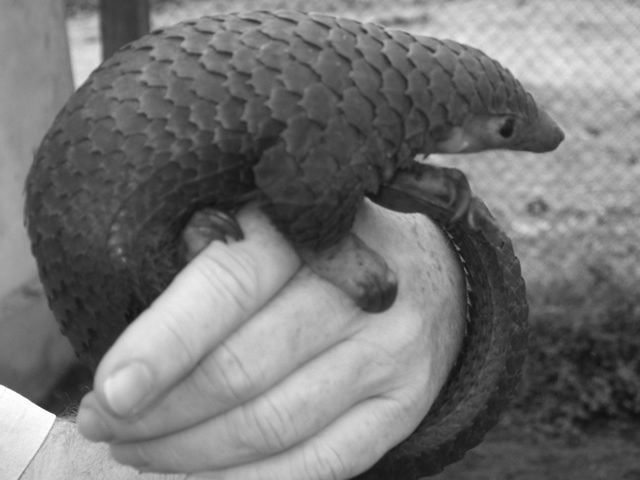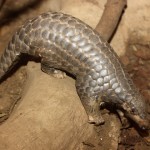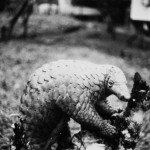Thanks to a few caring citizens, a pangolin has escaped persecution and poaching – at least for now.

Life is hard for pangolins, as they face daily threats of being poached, losing habitat, or being brutally murdered by angry mobs of humans.
Thanks to concerned residents in Tuticorin, India, one little pangolin has been given a second chance.
The Hindu reports that the animal had wandered into a populated area on Sunday in search of a delicious ant or termite snack.
A few caring individuals reported the presence of the special visitor to local police, who then notified forest department personnel.
People working in the area tied a rope around the critter and waited for forest staff to come and relocate it.
Much to the pangolin’s and its rescuers’ dismay, it was, unfortunately, several hours before the authorities arrived on the scene.
Contempt for misunderstood pangolins often ends fatally
In June, The Nation reported that a mob of Indian villagers had violently bludgeoned a scaly anteater to death with bricks, sticks, and stones, before extravagantly parading the carcass around town to show their ‘bravery’.
Some individuals reportedly continued beating the lifeless body in the streets with their shoes.
The people claimed they were afraid of the ‘very dangerous and strange animal’ and killed it to punish it for frightening local residents.
Pangolins are actually toothless and pose no threat to humans whatsoever.
These shy and elusive critters are only dangerous when an inexperienced person attempts to physically handle them, as their scales are incredibly sharp and can cut one’s skin.
Two months ago, a farmer in India came across a dead pangolin that had been electrocuted on a fence intended to keep boars, jackals, and other wildlife out of crop fields.
According to The Nation, the farmer then hung the animal in town for all to see.
Villagers apparently threw the pangolin into a nearby canal after they became irrationally frightened by it.
Because pangolins and other wildlife often end up in these types of horrific situations, it is crucial that rapid response teams are available to be dispatched to the scene quickly, so that they can control the crowds and keep the animals safe.
Poaching is #1 threat to the ‘walking pinecones’
Pangolins are in high demand in East and Southeast Asia – predominantly in China and Vietnam – where their scales are used to make traditional Chinese medicines and the flesh of both adults and fetuses is consumed as a delicacy and to acquire perceived health benefits.
According to wildlife trade monitoring network, TRAFFIC, pangolins are the most commonly encountered mammals in the illegal wildlife trade in Asia.
Tens of thousands of pangolins are seized from smugglers every year.
Pangolins and rhino horn: all keratin, no medicine
There is no scientific evidence to support any of the medicinal claims made about pangolin body parts.
Pangolin scales are mainly composed of keratin—the same protein that makes up our own hair and nails, horse hooves, and rhino horn.
Studies have repeatedly shown that rhino horn contains no curative properties, which suggests that pangolin scales do not either.
Read more about the illegal pangolin trade here.
Author: Sarah Pappin. Read more about Sarah here.
Image: By Valerius Tygart (Own work) via Wikimedia Commons





![Pangolin Rescue! [Video]](https://www.pangolins.org/wp-content/uploads/2012/03/pangolin-fell-down-well-150x150.jpg)
Comments are closed.